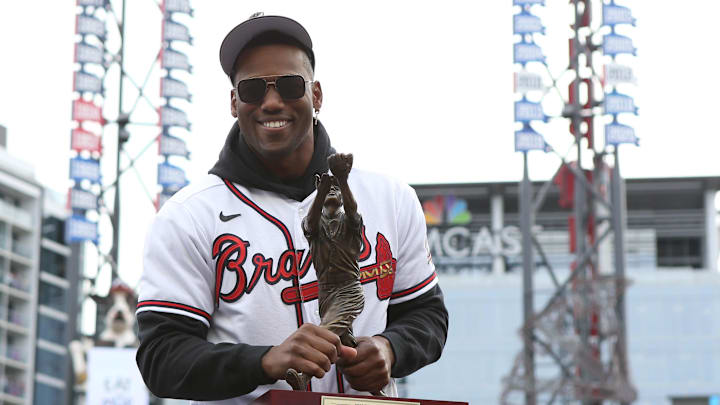
Anthopoulos’ take on the deadline
In interviews after the deadline, the Braves PoBO (Twitter or X link) said that positive reports on the health of Max Fried and Reynaldo Lopez convinced him to acquire a bat to reinforce the lineup and add depth to the pen.
Initially, it felt the contracts of Soler and Jackson had to push the team over the threshold, but the contracts included signing bonuses paid by the Giants, which meant the final tax hit was under $2M. According to Fangraphs, the final taxable payroll is $1,687,610 below the $277,000,000 threshold at $275,312,390.
In an interview during the last game in Milwaukee, Anthopoulos said they fielded calls right up to the deadline about offers they’d made earlier but decided against adding a deal. They were ready to do more for the right player(s) and had other offers that would have changed the roster and CBT calculus, but decided the return wasn’t worth the cost.
The Braves gave up an injured pitcher and an A-ball infielder for Soler, who had batted .280/.374/.486/.860 with a .372wOBA and 146 wRC+ since June 1, and Slider-man Jackson. One pundit described the Braves deal as a desperate move by a desperate team.
Oddly, that pundit didn’t say the same about the Astros emptying their system for a 33-year-old fifth starter carrying a 4.75 ERA – 1.34 WHIP- who gives up 1.3 homers every nine innings. That sounds desperate to me; I guess it depends on your perspective.
Soler will hit because that’s what he does. If the rest of the lineup returns to anything resembling its true form, the Braves are the threat everyone feared. The trade didn’t empty the farm system, burden the team with an onerous contract, or a perpetually injured, highly-played player. It does give Alex Anthopoulos payroll flexibility going into the offseason and keeps our first-round draft pick in the first round.
